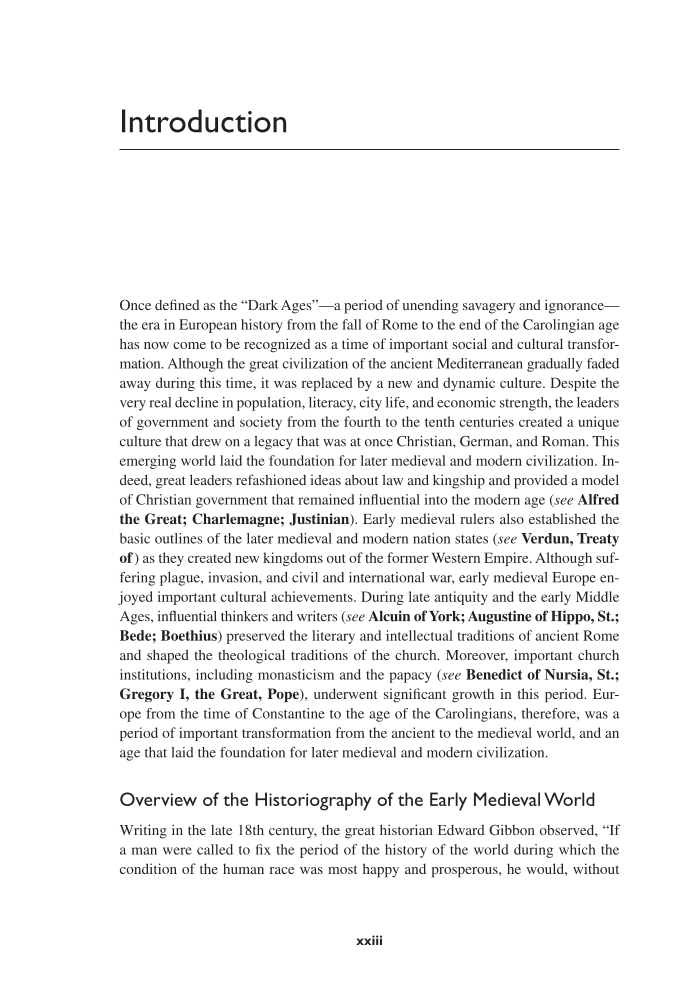xxiii Introduction Once defi ned as the “Dark Ages”—a period of unending savagery and ignorance— the era in European history from the fall of Rome to the end of the Carolingian age has now come to be recognized as a time of important social and cultural transfor- mation. Although the great civilization of the ancient Mediterranean gradually faded away during this time, it was replaced by a new and dynamic culture. Despite the very real decline in population, literacy, city life, and economic strength, the leaders of government and society from the fourth to the tenth centuries created a unique culture that drew on a legacy that was at once Christian, German, and Roman. This emerging world laid the foundation for later medieval and modern civilization. In- deed, great leaders refashioned ideas about law and kingship and provided a model of Christian government that remained infl uential into the modern age ( see Alfred the Great Charlemagne Justinian ). Early medieval rulers also established the basic outlines of the later medieval and modern nation states ( see Verdun, Treaty of ) as they created new kingdoms out of the former Western Empire. Although suf- fering plague, invasion, and civil and international war, early medieval Europe en- joyed important cultural achievements. During late antiquity and the early Middle Ages, infl uential thinkers and writers ( see Alcuin of York Augustine of Hippo, St. Bede Boethius ) preserved the literary and intellectual traditions of ancient Rome and shaped the theological traditions of the church. Moreover, important church institutions, including monasticism and the papacy ( see Benedict of Nursia, St. Gregory I, the Great, Pope ), underwent signifi cant growth in this period. Eur- ope from the time of Constantine to the age of the Carolingians, therefore, was a period of important transformation from the ancient to the medieval world, and an age that laid the foundation for later medieval and modern civilization. Overview of the Historiography of the Early Medieval World Writing in the late 18th century, the great historian Edward Gibbon observed, “If a man were called to fi x the period of the history of the world during which the condition of the human race was most happy and prosperous, he would, without
Document Details My Account Print multiple pages
Print
You have printed 0 times in the last 24 hours.
Your print count will reset on at .
You may print 0 more time(s) before then.
You may print a maximum of 0 pages at a time.





































































































































































































































































































































































































































































































































































































































































































































































































































